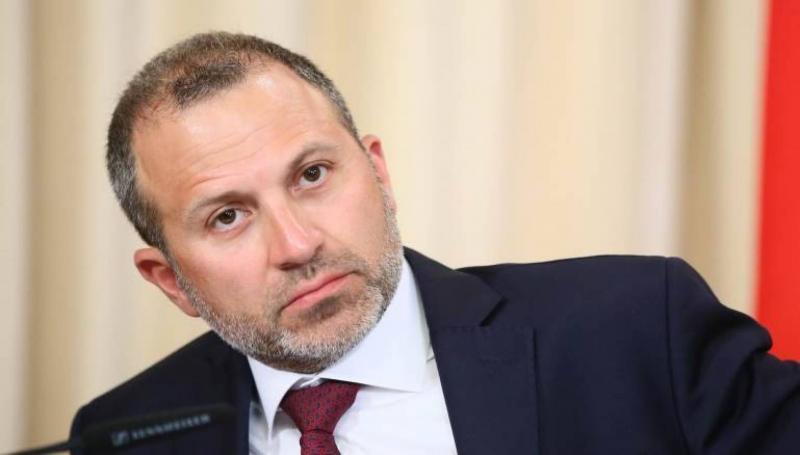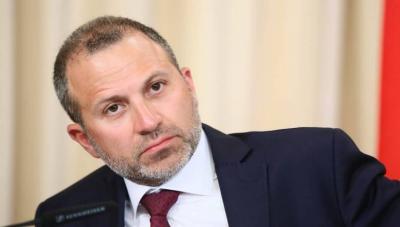The president of the "Free Patriotic Movement," MP Gebran Bassil, called for a "ceasefire in southern Lebanon and to separate matters from the war in Gaza," urging for "an agreement on a president for the republic to fill the vacancy, based on the principle that no one can impose anything on anyone in Lebanon."
In an interview with "Kuwaiti Anbaa," Bassil emphasized the need for unity during this critical phase that Lebanon is experiencing, which is witnessing unprecedented collapse. He affirmed support for the resistance in facing Israeli aggression against Lebanon while simultaneously rejecting Hezbollah's position to participate in the war in Gaza, citing the lack of internal national consensus.
He noted that "it is clear that Hezbollah does not want a major war with Israel, which is a commendable position, yet it has lost the control to stop the war, leaving the decision in Israel’s hands," questioning "for whose sake has this happened? For Yahya Sinwar or to liberate Jerusalem?"
Bassil expressed hope that "the concerned countries would assist us in achieving this," and did not wish to link the ceasefire to the presidential election, insisting that the presidential election must occur regardless.
He emphasized the importance of communicating with Hezbollah at the highest levels and confirmed positive communication with the Speaker of Parliament, Nabih Berri, although he urged the latter to seek a separation of the internal Lebanese issue from the Gaza War.
He stressed "not to waste time in organizing presidential election papers with titles such as dialogue, which would prolong the vacancy," while welcoming any internal efforts under any name, such as consultations.
Regarding discussions on the presidential election with Speaker Nabih Berri, Bassil noted that "we discuss broad outlines, but this is certainly not enough." He believed "nothing prevents reaching an agreement on a candidate for the presidency," while simultaneously offering acceptance of the results of parliamentary votes.
Bassil urged Berri, who is keen on agreeing on a presidential candidate acceptable to the Christian bloc, to consider the concerns of Christians regarding the actions of the caretaker government in the absence of a president.
He expressed full "readiness for discussion, affirming that they could reach consensus on a presidential candidate, while downplaying rumors about his preference for one candidate over another, also rejecting the notion of a personal triumph in marginalizing the Frangieh-Aoun duo as the stance is not personal."
On the internal Christian file, he confirmed that "his position has not changed and is well-known to the Maronite Patriarch," mentioning an existential threat to the Lebanese entity that affects the Christian component. He revealed that "the movement could not gather the signatures of 26 deputies to submit a petition against the caretaker government and its violations, and we have given up on this idea," stressing the importance of having an action plan to implement the ongoing document at Bkerke, attributing the failure to those who seek to do so.
Regarding the responsibility of the movement in undermining the Maarab Agreement with the "Forces," he clarified that "this is part of the false propaganda being circulated against us. The essence of the original agreement was to ensure the success of the term by the two parliamentary blocs belonging to the movement and the Forces. The agreement stipulated a share distribution without involving the president. The Forces undermined the core by opposing us and the president in the cabinet, culminating their mission by revolting against the Prime Minister of the term."
Regarding a potential visit to Doha in response to a Qatari invitation, he stated: "There is no agenda for the visit, and it is better to wait for the right time to derive benefits from it." He added: "While the Qataris communicate with everyone and want to assist and invest in Lebanon, their successful experience in the Doha Conference of 2008 is noteworthy, and help from them and others is welcome, aiming at reaching an understanding among the Lebanese, not imposing names on them in the presidential election or others."




